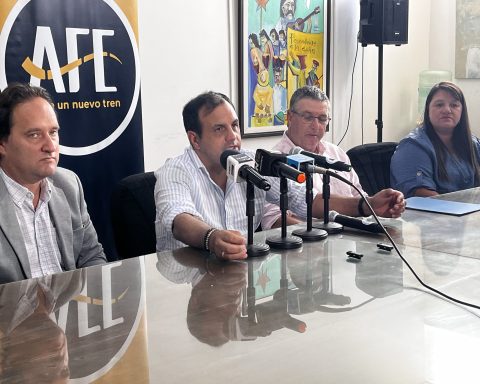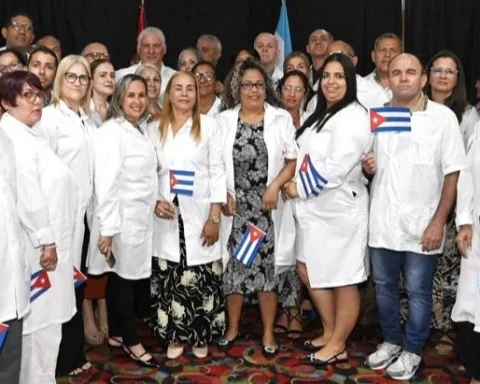The leader from Colonia, agronomist Andrea Maddalena, participated last weekend in the meeting “Realities and Challenges of Uruguay of the XXI Century” that the Network of Political Women held in the Montevideo mayor’s office and pointed out the importance of continuing to promote three Topics: the economic independence of women based on equal wages, the National Care System where women are the majority and overcoming the Quota Law in politics for a Gender Equality Law in filling government positions .
Maddalena is the departmental director of Inmujeres and within this framework she participated in the meeting “Realities and challenges of Uruguay in the 21st century of the network of women politicians.”
Regarding this meeting, he said that the network in Uruguay is celebrating “31 years, which is made up of all the parties with parliamentary representation. Since it was created in 1992, it has had a rights agenda with a gender perspective that ends with some achievements. For example, some members of the network accessed parliament in 2000 and until 2005 some important laws were promoted, such as the domestic violence law, gender-based law, the quota law, which was achieved in 2010, which will be implemented for the first time,” he said.
Also the sexual and reproductive rights of women, “this includes the decriminalization of abortion, among other important achievements, and what has to do with the wage gaps that exist today between men and women for equal work, equal remuneration. These have been the most important lines since 1992.”
In the present
Now, he said, “we understood that it was important to meet and reflect on the issues that have to be prioritized in a political agenda of all parties, of social organizations, and that is why we met,” he said.
Four meetings were projected for this year, he said, “based on a cycle called ‘More and Better Democracy.’ The first was on Saturday the 27th and the following will be one in Rivera, in Maldonado and Salto. We finished in August and then we will make a report with the inputs obtained”.
In September, which is the month of democracy, “we will be presenting the results publicly,” he said,
“We believe that at the point where the least progress was made beyond the laws has been on the labor issue, we had a talk on parity democracy and on the financing of political parties. Then we worked by game and made a set-up ”, he pointed out.
Coincidence in the National Care System
“We all agree on the issue of economic autonomy for women, prioritizing the Care System as a state policy, because that generates equal opportunities for women,” she said. And she recalled that “about the care of children, relatives or people with different abilities, 90 percent are women who take care of everything,” she said.
And a survey was presented on the use of time that is carried out in all countries, he pointed out, “in Uruguay it had not been done for ten years and that survey showed that unpaid work, which is care work, is equivalent to 23% of the contribution to the GDP of this country. Almost 24 percent, that is the contribution to GDP if we were to put a value on it, and within that 24%, almost 17 percent of the contributions correspond to women, which means that the vast majority that deals with care are women. And that means great inequality because it is a condition for going out to work, going out to study”.
“We all agreed that we should put this on the table,” he remarked. “The National Care system must be redesigned and budgeted and that means resources and we agree that the State must focus resources on this because it is what generates a great gap. Unpaid work, the economic autonomy of women, issues of violence, and we also talk about parity democracy”.
The quota law at first had a positive impact on the participation of women in the party structure, he said, “but today the countries already have parity laws not only in elective positions, but also in positions of trust and executive positions. ”.
Surely in this period we are not going to have a parity law, but we must continue working. The first bill of quotas was made in 1988. “Dr. Alba Cassina, who was a substitute deputy, did it. She entered the chamber for three days and with the consensus of the compañeras, presented the bill of quotas. Thirty years had to pass, ”she pointed out.
















